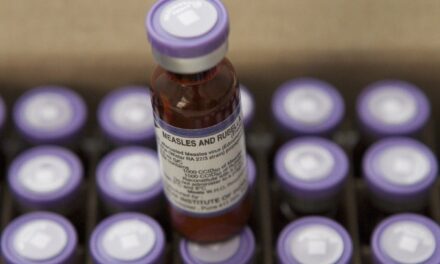Groundbreaking Gene Therapy Restores Sight in Children
Four young children born with severe vision impairment have experienced life-changing improvements in their sight thanks to a groundbreaking gene therapy. The treatment was developed by scientists at the UCL Institute of Ophthalmology and administered at Moorfields Eye Hospital, with support from MeiraGTx.
These children were born with a rare genetic disorder affecting the AIPL1 gene, which plays a crucial role in healthy vision. This condition, a severe form of retinal dystrophy, leaves those affected with only the ability to distinguish between light and dark. The defective gene causes retinal cells to malfunction and eventually die, leading to permanent blindness from birth. The new therapy aims to help these cells function properly and extend their lifespan.
Early Results Show Promising Improvements
Developed by UCL researchers, the treatment involves injecting healthy copies of the AIPL1 gene directly into the retina using keyhole surgery. These replacement genes are delivered via a harmless virus, which allows them to enter the retinal cells and take over the function of the faulty gene.
The condition is very rare, and the first children identified were from overseas. To mitigate any potential safety issues, the first four children received this novel therapy in one eye only. All four saw remarkable improvements in the treated eye over the following three to four years, but lost sight in their untreated eye.
The outcomes of the new treatment, reported today (February 20) in The Lancet, show that gene therapy at an early age can dramatically improve sight for children with this condition—one that is rare and particularly severe. Successful gene therapy for another form of genetic blindness (RPE65 deficiency) has been available on the NHS since 2020. These new findings offer hope that children affected by both rare and more common forms of genetic blindness may in time also benefit from genetic medicine.
The team is now exploring the means to make this new treatment more widely available.
Experts Highlight the Transformational Impact
Professor James Bainbridge, professor of retinal studies at UCL Institute of Ophthalmology and consultant retinal surgeon at Moorfields Eye Hospital, said: “Sight impairment in young children has a devastating effect on their development. Treatment in infancy with this new genetic medicine can transform the lives of those most severely affected.”
Professor Michel Michaelides, professor of ophthalmology at the UCL Institute of Ophthalmology and consultant retinal specialist at Moorfields Eye Hospital, commented: “We have, for the first time, an effective treatment for the most severe form of childhood blindness, and a potential paradigm shift to treatment at the earliest stages of the disease. The outcomes for these children are hugely impressive and show the power of gene therapy to change lives.”
A Family’s Journey: Jace’s Incredible Progress
The parents of one of the children, Jace, from Connecticut, USA, shared details of their experience with the experimental treatment, which they were accepted for after Jace was diagnosed with an aggressive form of LCA (Leber Congenital Amaurosis).
Jace’s mother DJ said: “After the operation, Jace was immediately spinning, dancing, and making the nurses laugh. He started to respond to the TV and phone within a few weeks of surgery and, within six months, could recognize and name his favorite cars from several meters away; it took his brain time, though, to process what he could now see. Sleep can be difficult for children with sight loss, but he falls asleep much more easily now, making bedtimes an enjoyable experience.”
Jace’s father Brendan concluded: “We are so grateful for this opportunity, and for the care he’s received. When first offered the chance to participate, we wanted to give him everything we could, for him to successfully navigate the world. We also understood the huge implications for future research, and how participating could help others. It has been a phenomenally positive experience, and the results are nothing short of spectacular.”
Hope for the Future and Wider Applications
The treatment was developed and manufactured at UCL under a Manufacturer’s ‘Specials’ Licence (MSL) held by UCL. MeiraGTx supported production, storage, quality assurance and released and supplied it for treatment under the genetic medicine company’s MSL.
The procedure to administer the treatment to the affected children took place at Great Ormond Street Hospital. The children were assessed in the NIHR Moorfields Clinical Research Facility, and the NIHR Moorfields Biomedical Research Centre provided infrastructure for the research.
The Role of UK Research and Medical Innovation
Professor Robin Ali, UCL Institute of Ophthalmology and King’s College London Centre for Gene Therapy and Regenerative Medicine, added: “This work demonstrates the importance of UK clinical academic center manufacturing facilities and MHRA (UK Medicines and Healthcare products Regulatory Agency) MSLs in making advanced therapies available to people with rare conditions.”
Disclaimer
This article is for informational purposes only and does not constitute medical advice. The gene therapy mentioned is still in the research phase and not yet widely available. Individuals seeking information about vision impairment treatments should consult a qualified medical professional. The views and experiences shared by patients are unique and may not reflect general outcomes.











